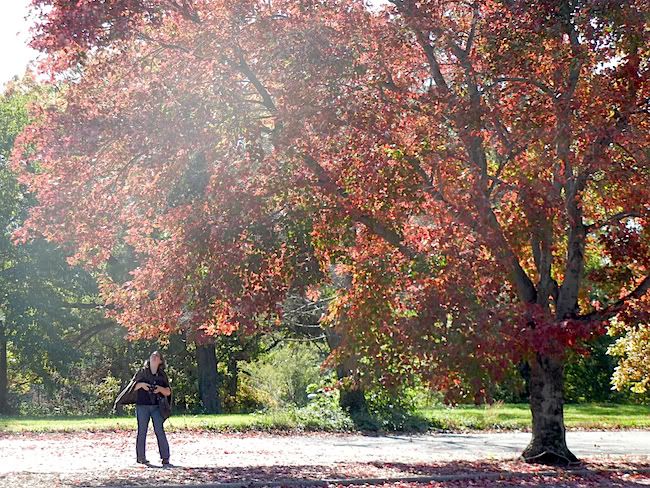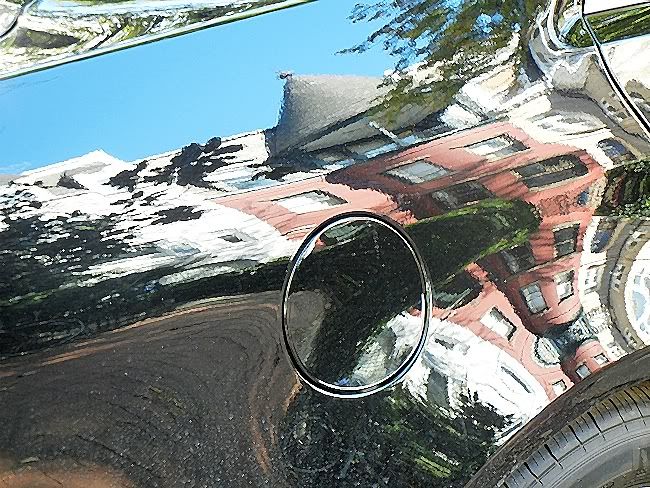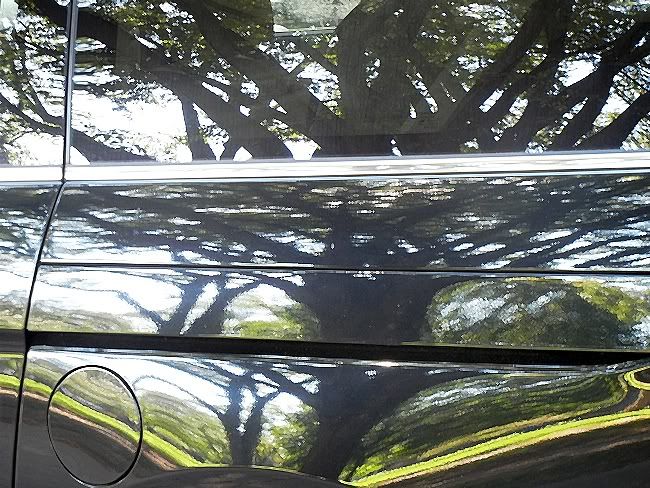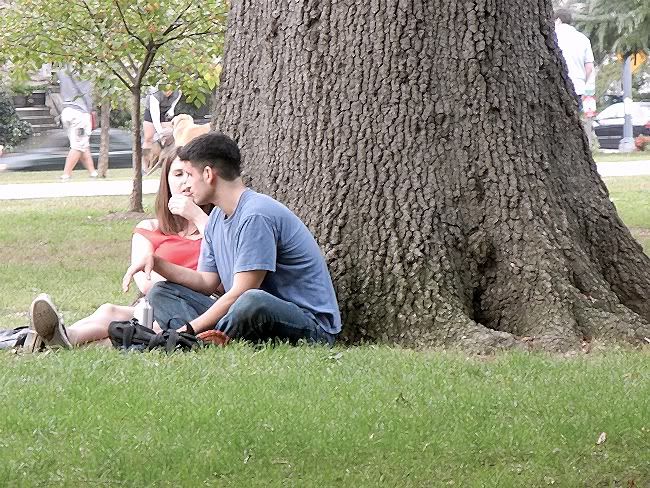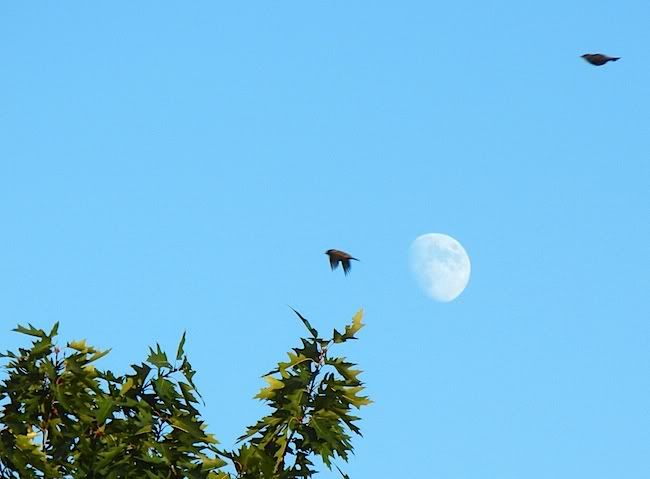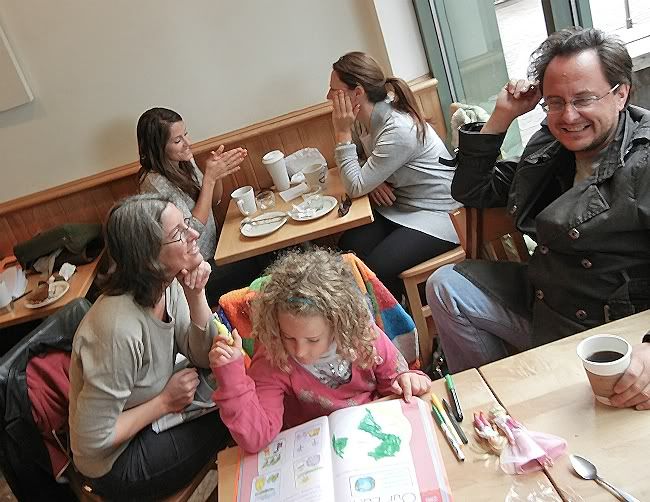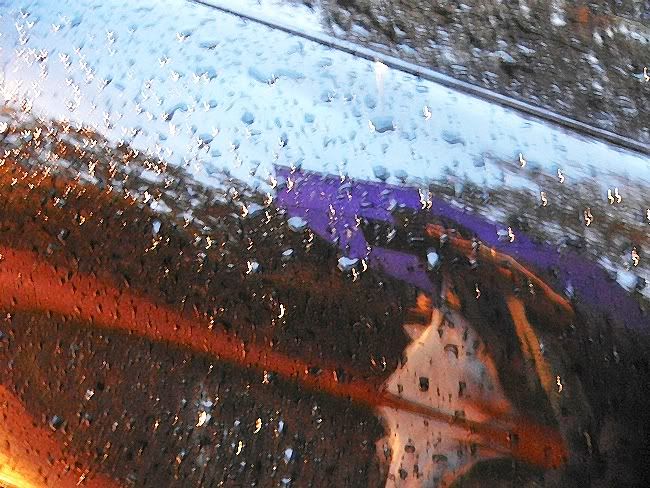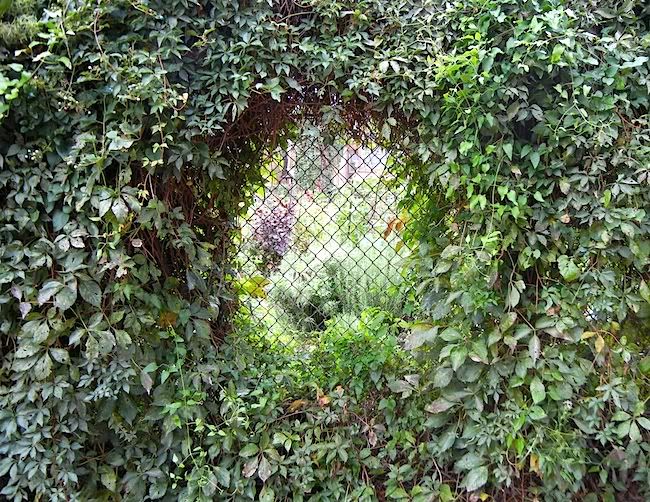
A fleecy sky such as this always heralds the coming of a big storm.
When people get sick, I tend to be more interested in the conditions that existed before the illness than in the illness itself. What is the ground in which the virus took hold? Consider the source, when you catch a cold. In what ways was your resistance lowered?
Similarly, I'm not as interested in the substance or activity to which people become addicted as I am in what that addiction addresses. What is the body/mind getting from the behavior and/or substance? What is the body/mind trying to accomplish?
Tying one on occasionally has its benefits. People blow off steam, let go in ways perhaps they never would otherwise. DC is a drinking kind of town. People are so tightly wound; even if they exercise and meditate, sometimes it isn't enough.
But what is going on when people drink to excess every day? Perhaps this behavior suggests that the body/mind doesn't know any other way to relax, blow off steam. Sometimes it means there is something going on that the daily drunk is unable to face or tolerate. Or maybe it's a habit. It can be as simple as that. The drinking is not as interesting to me as what is driving the person to drink. I've known a lot of dry drunks who have successfully quit alcohol, but still have a ways to go in terms of addressing the basis for the addiction.
Alcoholism is just one example of addiction. It's not always about a substance after all. For some folks, anger, anxiety or another intense emotion is addictive, maybe because of the adrenalin rush that accompanies these strong feelings.
Everyone is addicted to something or another, at least I think so. Sometimes I believe at the root of all addictions is the overpowering human urge to control the uncontrollable. We so want to wrap our minds and arms around the mysteries of the world. I don't blame anyone for the tyranny of addiction; my heart goes out to those who suffer most from addictive incarceration. It is like being in jail.
Recovery from any kind of addiction is a form of soul retrieval. It takes spiritual heroism to recover! I am in awe of those who tackle and triumph over their addictions.
It's interesting to think about.
Happy Sunday from super cold rainy Washington DC. Shalom.


